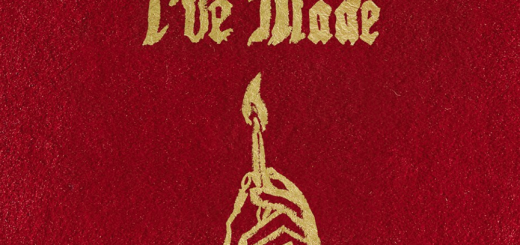Local artists launch online art exhibit calling for a universal basic income

By Mackenzie Mason, Arts Editor
10 artists representing communities who are most susceptible to poverty, such as deaf, disabled and mentally ill communities, are calling for a universal basic income (UBI) to be implemented — through art. This follows the Canadian Emergency Response Benefit (CERB) coming to an end for many Canadians experiencing financial uncertainty.
CERB helped many Canadians get by during the worst months of the COVID-19 pandemic. But, with the program ending on Oct. 3, citizens who relied on CERB to support themselves are concerned about the lack of jobs and where their next paycheck will come from.
That’s where a UBI, also known as a negative income tax, would come in.
A UBI is a plan that would provide unconditional cash payments to Canadians based on assuring a level of basic need for your family, depending on its size. In this system, money is taxed away as your income increases, rather than as a flat rate for all Canadians.
“Study after study has shown that a basic income works; it makes sound economic sense. Research and testimonies indicate that a basic income is the step-up that people need, [and] it gives people the freedom to build better lives for themselves and their families,” says Lee Stevens, policy and research specialist at Vibrant Communities Calgary.
“It’s time Canada moves beyond pilots and builds on the lessons learned. It’s now more important than ever that Canada take action and develop a national basic income strategy that works for everyone.”
Colleen Huston, co-ordinator and artist from the Disability Action Hall and member of Basic Income Calgary, says people are really starting to think and talk about a basic income — including more than 75,000 artists who have signed an open letter calling on Canada’s government to create a national basic income strategy.
“We knew it was important for Calgary artists with disabilities to be a part of this conversation, a population who have yet to benefit from federal and most provincial emergency COVID-19 responses,” Huston says.
To get the message across, they felt art was a logical way to draw attention to a basic income that includes everyone.
The online exhibit titled, “Basic Income Through The Lens of the Disabled, Deaf and Mad,” debuted on Sept. 18 and was spearheaded by Basic Income Calgary.
It brought together talented Calgarian artists who created a piece of art inspired by the principles of basic income, in addition to a limited edition collaborative print that was unveiled during the virtual gallery opening.
Each artist was asked to describe what a UBI would mean to them, which is featured under each piece in the virtual gallery on Basic Income Calgary’s website.
To these artists, a UBI means the difference between doing what they want to do, and what they should do for a living; or even not eating to pay the bills.
“In an ideal world, basic income would help me and my parents, who are seniors living on a very small pension, pay for the rising cost of items needed to survive (like) food, clothing, utilities, bills, rent, transportation and medical supplies,” artist Mary Salvani says.
Alisha Marie Adams, another artist who participated in the exhibit, is a single woman with post-traumatic stress disorder and bipolar disorder. She says if she is having an episode, it’s difficult to do her normal, everyday activities.
“I would greatly benefit from a basic income. It would allow me to get better quicker, to keep a roof over my head and food in my fridge — to keep me out of crisis. It would allow me time to self-manage my illnesses,” Adams says.
Many of the artists involved in the project have even advocated for financial programs that are based on the idea of UBI’s, like Assured Income for the Severely Handicapped (AISH) and the Canadian Pension Plan disability benefits.
But for artist Kathy M. Austin, who was hit particularly hard by COVID-19 and who may not qualify for AISH, a basic income could calm her fears of losing her house and give her the ability to afford groceries.
Copies of the pieces have been sent to federal and provincial politicians in an effort to continue making the case for a national universal basic income, as the country’s governments attempt to find a way to continue supporting their citizens financially.




